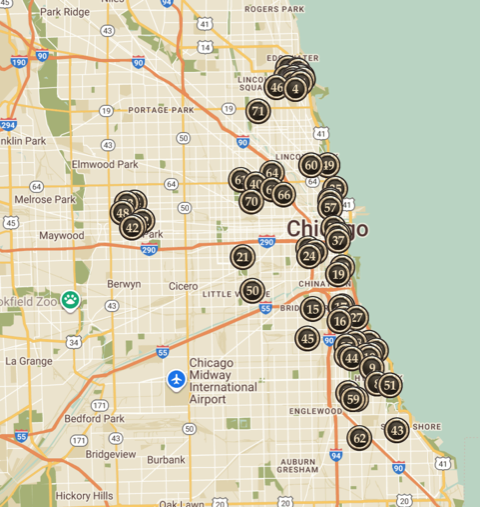By Nike Whitcomb
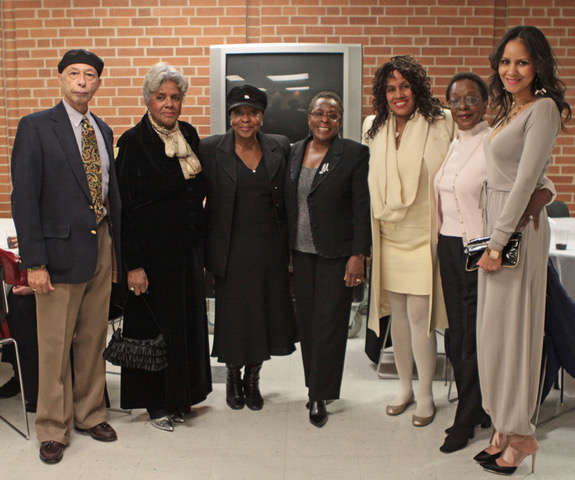
Who is your favorite author? Why? When you start to read a book, what makes it unforgettable: plot, characters, locations, something else?
Did you know that Chicago is/has been the home of more than 50 major authors?
The first true celebration of these noteworthy people came in 2008, and it has grown significantly
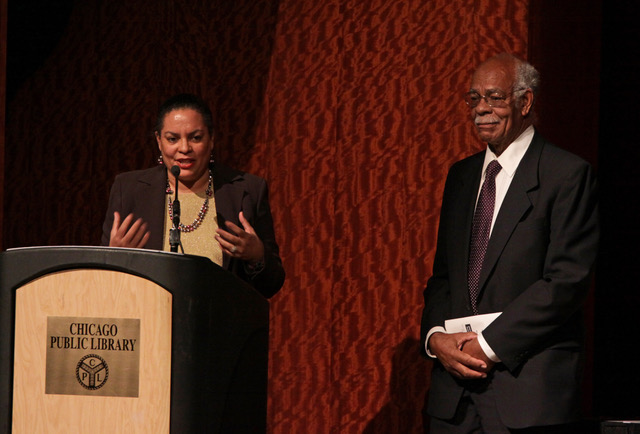
The Chicago Literary Hall of Fame began in 2008 as a project of the Chicago Writer’s Association (CWA).
In 2008, the concept of a Hall of Fame was just an idea. At the beginning, founder Donald G. Evans worked with CWA president Randy Richardson to build the concept for the Hall of Fame. At the same time, Evans put into place procedures for induction into the CLHOF, assembled the first nominating and selecting committees, and with the large contributions of Valya Lupescu, put on the first induction ceremony at Northeastern Illinois University’s Auditorium.
CLHOF’s Mission: to honor and preserve Chicago’s great literary heritage.
The Hall of Fame achieves its mission through educational programming, awards, exhibits and other special events, particularly its annual induction ceremony. CHLOF also continues to expand its repository of detailed information about Chicago’s past, present and future literary life through such projects as the Chicago Literary Map and Chicago Literary Tours, which includes a South side literary bus tour and an Uptown walking tour. recently included a South Side literary overview. CLHOF has done tours of Pilsen, Gold Coast, downtown, Oak Park, Bronzeville, and elsewhere; all of those tours will be repeated in the future, in some form. CLHOF has created apps for the most recent tours—South Side and Uptown—which include maps (including variations on the primary tour), narratives of each site, reading lists, links, and pictures..
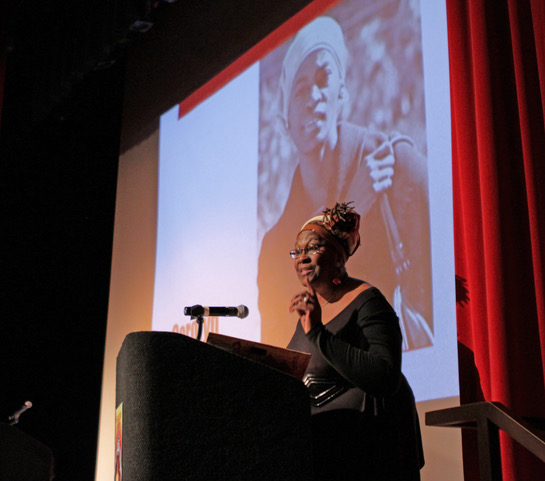
In its first four years: 2008 – 2012, the Chicago Literary Hall of Fame expanded its programming and reach and added a lifetime achievement honor: the Fuller Award and the Upcoming Young Writers to its annual traditions fostered by Randall Albers. The scope of the organization required greater support and an independent board, and so in January 2014 the Chicago Literary Hall of Fame became its own nonprofit 501 c(3) entity.
“Chicago is not a city that can be crisply explained, neatly categorized, or easily understood,” says Don Evans, Founder of the CLHOF. Yet through literature we strive to define our place in the world. Our literature speaks to our city’s diversity, character and heart. In our literature can be found all we love and hate, frozen snapshots of our vast terrain over the years, commentary on our ever-changing culture. In our literature can be found who we are and what we do and where we do it. The value and character of our city is not only reflected in but shaped by our great books.
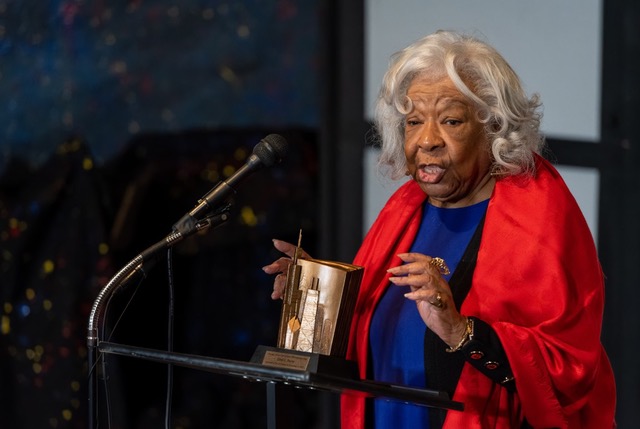
Literary Chicago
Mark Twain said, “She is novelty; for she is never the Chicago you saw when you passed through the last time.”
Don Evans expands on Twain’s comment: ‘Buildings crumble. That Thai restaurant you loved becomes a Tex-Mex joint, which becomes a hookah smoke shop. Bars close their taps. The fine arts theatre where you first saw Casablanca now plays horror films, mostly, and sometimes soft porn. Department stores, even baseball stadiums and skyscrapers, call themselves something else. But then, there’s that hat store that does your blocking—still there in Six Corners—and the little league field you played on as a kid, and your old barber who does close shaves with a shaky hand.
Chicago’s literary landscape, too, is ever-changing. The house in which L. Frank Baum wrote The Wonderful Wizard of Oz is now a hodgepodge of multi-unit, low-income housing. The Blue Sky Lounge, Mike Royko’s dad’s bar, above which the family lived, is now a Ma & Pa dentist office. The Stockyards, where Upton Sinclair’s The Jungle took place, is gone, but the old entry gate remains. But then…the school playground on which both Studs Terkel and James T. Farrell romped is still there; Ernest Hemingway’s birthplace is not only around but restored to the condition in which it stood during the future Nobel Prize winner’s first six years—and open for public tours. The homes of Lorraine Hansberry, Gwendolyn Brooks and Richard Wright have all received historical landmark protection.
To understand Chicago’s remarkable literary cultural, it is important to visit the author sites, those still here and those lost to history and urbanization, that figured so prominently in the lives of our greatest authors. Through the places associated with Chicago’s literary figures, we can tell the story of our great authors, their stories, and, indeed, our city. CLHOF’s Literary Map of Chicago identifies some of Chicago’s most significant literary places and will be the basis for a series of more narrowly defined maps that delve deeper into individual histories. The map is evolving over time, and in the future CLHOF hopes to publish contrasting photos—archival and contemporary—to pinpoint the past and present realities of each site.
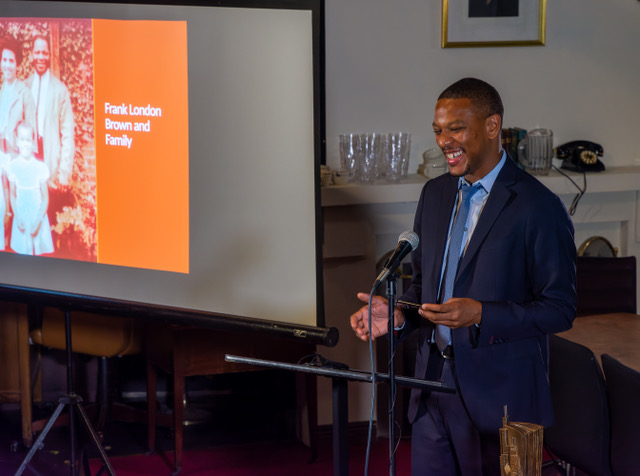
One of CLHOF’s projects has been an anthology of poets and artists – all living and all with strong ties to Chicagoland. The book is titled “Wherever I’m At,” and features the work of more than 160 widely diverse Poets and artists.
Other projects have included recognizing lifetime achievers with the Fuller Award. This award was inspired by Henry Blake Fuller, one of Chicago’s earliest novelists and author of the “Cliff Dwellers” and “With the Procession.”
The ‘fuller” was a tool that made things happen and became a symbol of possibility and perseverance. The Fuller award was based on Hephaestus, the Greek God of the blacksmith’s fire, and patron of all craftsmen. The 2025 found recipient of the Fuller Award is Jackie Taylor, Founder of the Black Ensemble Theater.

To learn more about the CLHOF, Visit our website: chicagoliteraryhof.org
Chicago Literary Hall of Fame Inductees through 2025
Robert Sengstacke Abbott (Inducted in 2017)
Jane Addams (Inducted in 2012)
Nelson Algren (Inducted in 2010)
Rane Arroyo (Inducted in 2015)
Margaret Ayer Barnes (Inducted in 2016 )
L. Frank Baum (Inducted in 2013)
Saul Bellow (Inducted in 2010)
Timuel Black, Jr. (Inducted in 2025)
Marita Bonner (Inducted in 2017)
Ray Bradbury (Inducted in 2021)
Gwendolyn Brooks (Inducted in 2010)
Frank London Brown (Inducted in 2019)
Oscar Brown, Jr. (Inducted in 2025)
Margaret T. Burroughs (Inducted in 2015)
Fanny Butcher (Inducted in 2016)
Cyrus Colter (Inducted in 2011)
Carlos A. Cortéz (Inducted in 2019)
Frank Marshall Davis (Inducted in 2018)
Theodore Dreiser (Inducted in 2011)
Finley Peter Dunne (Inducted in 2022)
Roger Ebert (Inducted in 2016)
James T. Farrell (Inducted in 2012)
Edna Ferber (Inducted in 2013)
Eugene Field (Inducted in 2016)
Leon Forrest (Inducted in 2013)
Jeannette Howard Foster (Inducted in 2019)
Henry Blake Fuller (Inducted in 2017)
Hamlin Garland (Inducted in 2023)
Samuel Eldred Greenlee, Jr. (Inducted in 2018)
Lorraine Hansberry (Inducted in 2010)
Alice Judson Ryerson Hayes (Inducted in 2015)
Ernest Hemingway (Inducted in 2012)
David Hernandez (Inducted in 2014)
Bette Howland (Inducted in 2022)
Langston Hughes (Inducted in 2012)
Fenton Johnson (Inducted in 2016)
John H. Johnson (Inducted in 2013)
Ring Lardner (Inducted in 2016)
Nella Larsen (Inducted in 2022)
Edgar Lee Masters (Inducted in 2014)
Harriet Monroe (Inducted in 2011)
Willard Motley (Inducted in 2014)
Lisel Mueller (Inducted in 2020)
Ethel L. Payne (Inducted in 2021)
Harry Mark Petrakis (Inducted in 2020)
Salima Rivera (Inducted in 2018)
Harriette Gillem Robinet (Inducted in 2025)
Carolyn Rodgers (Inducted in 2012)
Carl Sandburg (Inducted in 2011)
Carol Shields (Inducted in 2021)
Shel Silverstein (Inducted in 2014)
Upton Sinclair (Inducted in 2015)
Studs Terkel (Inducted in 2010)
Era Bell Thompson (Inducted in 2020)
Eunice Tietjens (Inducted in 2023)
E. Donald Two-Rivers (Inducted in 2023)
Margaret Walker (Inducted in 2014)
Theodore Ward (Inducted in 2015)
Ida B. Wells (Inducted in 2011)
Thornton Wilder (Inducted in 2013)
Richard Wright (Inducted in 2010)
